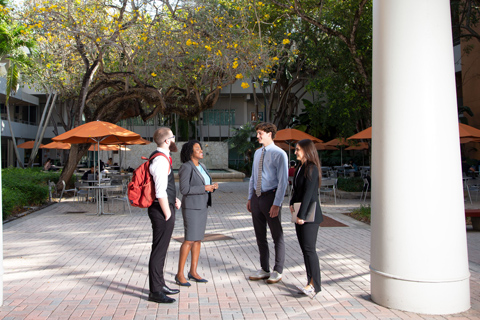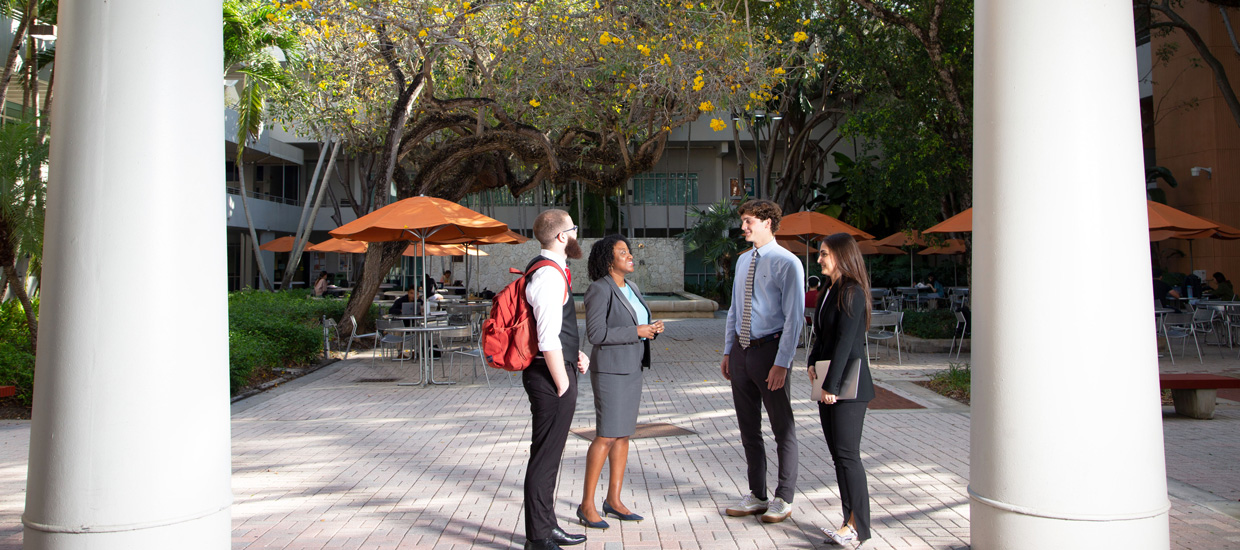J.D. + LL.M. Joint Degree Programs
Recognizing the increased need for specialization, Miami Law offers a wide range of options for advanced training in a complementary discipline through its J.D. + LL.M. Joint Degree Programs.
Current Miami Law J.D. students who wish to apply to one of Miami Law’s LL.M. Programs under the J.D. + LL.M. Joint Degree Program option should complete the Joint J.D./LL.M. application form.
Current Miami Law LL.M. students who hold a foreign law degree and wish to earn the J.D. through Miami Law’s LL.M. to J.D. Joint Degree Program “Transfer” Option, should contact their LL.M. Program directly and review their LL.M. Program page for further details. More information on the LL.M. to J.D. Joint Degree Program “Transfer” Option is available here.
Cost of Attendance and Scholarship Information
Cost of attendance information for international LL.M. students not receiving U.S. federal funding, including students on F-1 or J-1 visas, and for domestic LL.M. students can be accessed here.
For information on available scholarships, contact the LL.M. Program to which you are applying and review individual LL.M. Program pages.
Practicing Law in the United States
It is your responsibility to contact the Board of Bar Examiners of the state in which you desire to practice law to determine whether the foreign degree you received or the LL.M. degree will qualify you to sit for that state's bar examination. You should also be aware that successful completion of the LL.M. program, and even admission to a state bar, does not automatically give you the right to practice law in the United States. Thus, we urge you to carefully examine current immigration regulations and consult with a United States Consulate before applying to the Graduate Program.
Non-Discrimination Policy
It is the policy of the University of Miami School of Law that no person within the jurisdiction thereof shall, on the basis of race, color, ethnicity, national origin, religion, sex, sexual orientation, gender, gender identity or expression, age, disability, military status, veteran status, genetic information, or any other protected factor be excluded from participation in, be denied the benefits of, or be subjected to discrimination or harassment (including all forms of sexual harassment and sexual violence) under any program or activity of the University, regardless of whether such program or activity occurs on-campus or off-campus. Retaliation against an individual who files a complaint of discrimination, opposes a policy/procedure/practice because he/she believes it to be discriminatory, or who participates in the investigation of a discrimination complaint, is prohibited.





